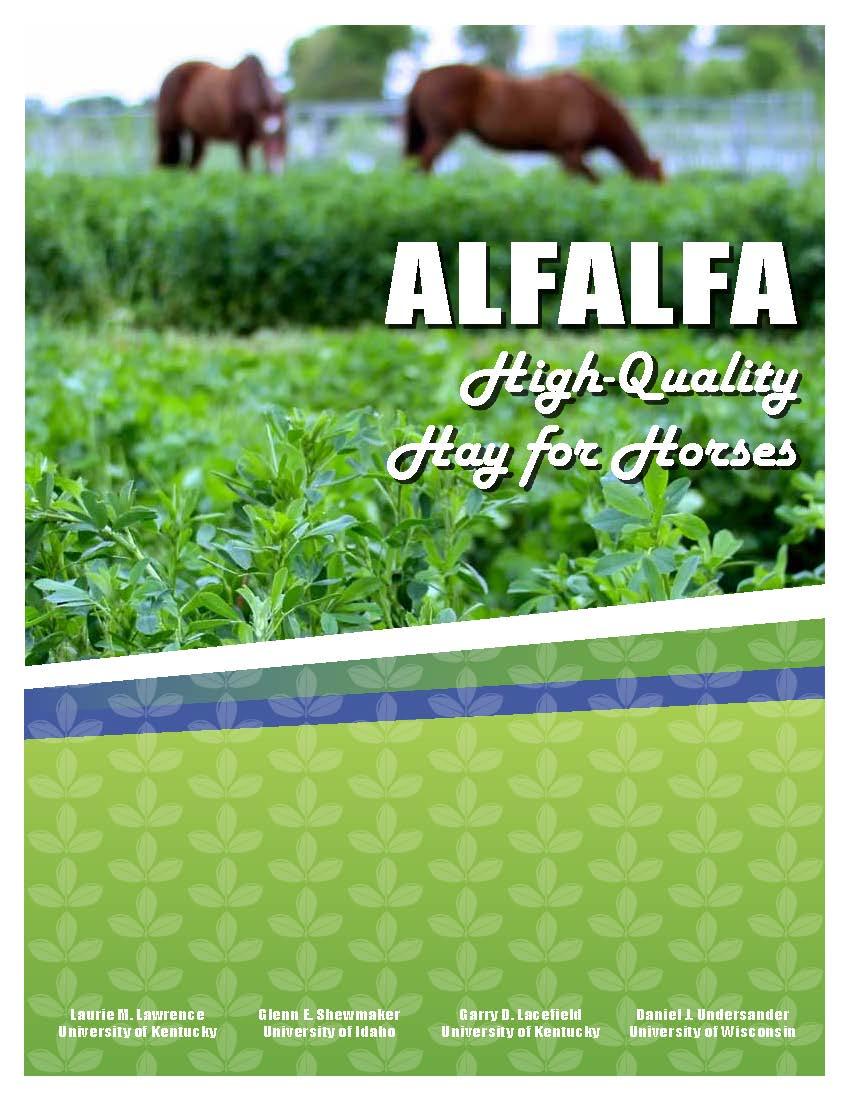National Alfalfa & Forage Alliance Releases Alfalfa: High Quality Hay for Horses
 Known as the “Queen of Forages,” alfalfa has long been accepted as one of the highest quality hays fed to horses. It is a widely adapted, perennial forage legume which produces more protein per acre than any other crop.
Known as the “Queen of Forages,” alfalfa has long been accepted as one of the highest quality hays fed to horses. It is a widely adapted, perennial forage legume which produces more protein per acre than any other crop.
To provide a comprehensive overview of the advantages of feeding alfalfa hay to horses, the National Alfalfa & Forage Alliance (NAFA) has recently updated and released Alfalfa: High Quality Hay for Horses, serving as a quick and handy guide to everything horse enthusiasts should know about feeding alfalfa to horses.
Several University of Kentucky nutrition and forage specialists have contributed to the publication in this and past iterations, including Laurie Lawrence, PhD, professor in the Department of Animal and Food Sciences, Garry Lacefield, PhD, professor emeritus in the Department of Plant and Soil Sciences.
Some of the publication’s highlights include:
- Physical characteristics of high-quality alfalfa hay
- Equine digestion of forages
- How growth stage affects forage quality
- Nutritional needs of horses
- Storing and feeding hay
“When we think of feeding alfalfa hay, the first thing that comes to mind is its common use in dairy and beef cow operations,” said Beth Nelson, NAFA president. “But alfalfa is often overlooked as an integral part of a well-managed, nutrient-dense equine diet.”
In addition to discussing the use of alfalfa for mature horses on a maintenance diet, horses used for sport and competition, broodmares and growing horses, Alfalfa: High Quality Hay for Horses also covers multiple options of bale size, how to assess quality through hay testing and visual inspection and how the time of the year alfalfa is harvested can influence quality.
The new publication concludes with a valuable “myth vs fact” section which addresses many of the common misconceptions about feeding alfalfa to horses, such as the myth that excess protein in alfalfa hay will damage a horse’s kidneys. In fact, normal healthy horses have no issues metabolizing and excreting extra protein, whether it is consumed from alfalfa hay or lush pasture.
This publication is intended as a resource for both horse owners and hay farmers as a useful educational tool to provide valuable information to their regular customers and to potential buyers.
Alfalfa: High Quality Hay for Horses is available to order for $2 per copy in print form or may be downloaded for free at https://www.alfalfa.org/publications.php.
Source: edited NAFA news release published June 8
